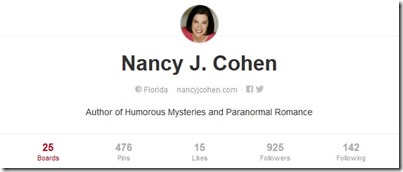by James Scott Bell
@jamesscottbell
 There’s a crucial scene in The Godfather where Sonny and Tom Hagen and the capos, Clemenza and Tessio, are trying to decide what to do about Sollozzo, who had Don Corleone nearly assassinated. Naturally, Sonny wants all-out war. Tom Hagen wants Sonny to calm down.
There’s a crucial scene in The Godfather where Sonny and Tom Hagen and the capos, Clemenza and Tessio, are trying to decide what to do about Sollozzo, who had Don Corleone nearly assassinated. Naturally, Sonny wants all-out war. Tom Hagen wants Sonny to calm down.
In the middle of it all sits Michael, whom no one expects to hear from. Michael has just saved his father from a follow-up attempt on his life, at the hospital. When the corrupt police captain, McCluskey, shows up, Michael accusing him of being on the take from Sollozzo. Whereupon McCluskey has his men hold Michael so he can bash in Michael’s face.
But Michael is the youngest son, the one his father wants to be “legit.” As he listens to all the talk he has his “mirror moment.” Will he continue to be the straight-and-narrow war hero? Or will he take a fateful step that will change the trajectory of his life forever?
Michael chooses. He tells everyone of a plan. Get Sollozzo and McCluskey to meet with him. Find out where. Plant a gun in the bathroom. “Then I’ll kill them both.”
After a moment of silent shock, the others in the room begin to laugh. Especially Sonny.
“Hey, whataya gonna do, nice college boy, eh? Didn’t want to get mixed up in the family business? Now you wanna gun down a police captain because he slapped you in the face a little bit? Hah? What do you think this is, the Army where you shoot ’em a mile away? You’ve gotta get up close like this and bada-bing! You blow their brains all over your nice Ivy League suit.”
Sonny kisses Michael’s head. “You’re taking this very personal. Tom, this is business and this man is taking it very, very personal.”
Michael lays out his plan in more detail. Cool and collected. Then looks at his brother. “It’s not personal, Sonny. It’s strictly business.”
Which brings to mind traditional publishing. It’s always been strictly business. As recent news reaffirmed. According to the NYT:
In a significant shake up, Penguin Random House, the largest publishing house in the United States, announced on Monday that the publishers of two of its most prestigious literary imprints had been let go.
The departure of Reagan Arthur, the publisher of Alfred A. Knopf, and Lisa Lucas, the publisher of Pantheon and Schocken, likely came as a surprise to many in the company — including, it seemed, to Lucas.
Lucas posted on X, formerly called Twitter, that she had learned of her dismissal at 9:30 a.m. on Monday morning. “I have some regrets about spending the weekend working,” she wrote.
Reagan and Lucas were “splashy hires.” But the company faces financial challenges “with rising supply chain costs and sluggish print sales.”
So two high-profile, in-house publishers became part of an across-the-board cost cutting move.
It’s strictly business. Which means if you, dear author, wish to pursue the “traditional” way of publication, you must understand:
- You are entering into a business relationship, which means everything ultimately comes down to whether you make the company money…or not.
- If you don’t make the company money, you will not be offered another contract.
- If you are not offered another contract, you will want to get the rights back to your books the company has published. However, the company may want to keep your books in print. This is also a business decision. The company has paid for your book to be published; they would like to make that money back.
- This makes your contract’s reversion clause of crucial importance. In the “old days” it was based on a book being “out of print” (which meant copies in the warehouse and available to bookstores. But print-on-demand and ebooks have rendered this obsolete. The simplest and fairest clause will trigger reversion when the author’s royalty falls below a threshold (say $250) for two consecutive accounting periods.
- Another clause to be considered is non-compete clause. The publisher does deserve some protection from an author publishing a substantially similar work with another company, or as an indie project. On the other hand, the author should be free to sell or publish other works that don’t directly compete. I’ve written about that here. The Author’s Guild offers further advice.
And if you go the indie route? It’s still business if you are in it to make some dough. There are other reasons to write and publish. But to build a stream of income, think like a publisher.
- If you were an acquisitions editor at a publishing house, would you give an advance for your book? Is there a market for it?
- Don’t shut off quality controls, i.e., don’t just type and publish. There is a roiling sea of lousy to mediocre fiction—and AI-generated content—uploaded to Amazon every day. Publishing a dozen novels a month doesn’t build a readership unless people want to read them, which they don’t.
- Growing a fan base takes time.
- Build an email list.
(Further thoughts on this can be found in How to Make a Living as a Writer.)
Comments welcome! (I’m on the road today, so will check in when I can.)









 A few weeks ago I got a text from my daughter. It read: “How often do you think about the Roman Empire?”
A few weeks ago I got a text from my daughter. It read: “How often do you think about the Roman Empire?”









